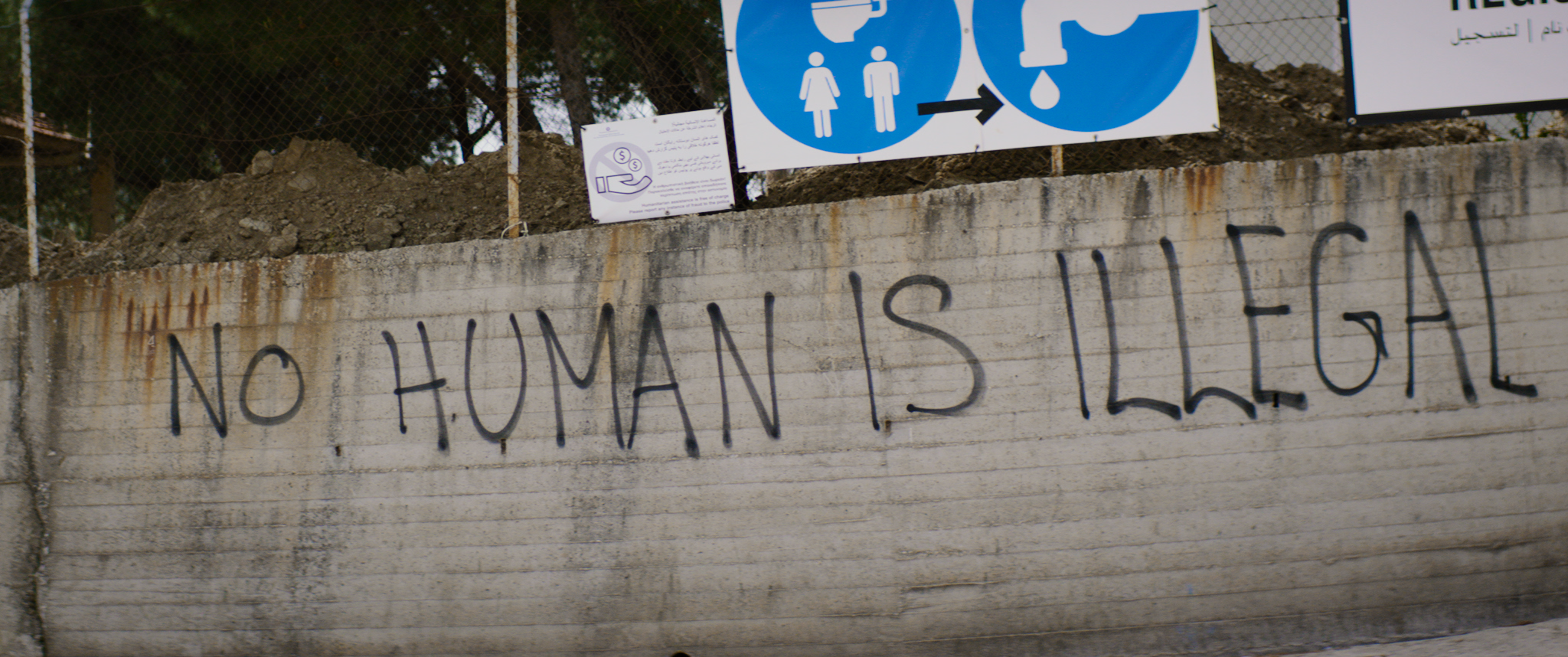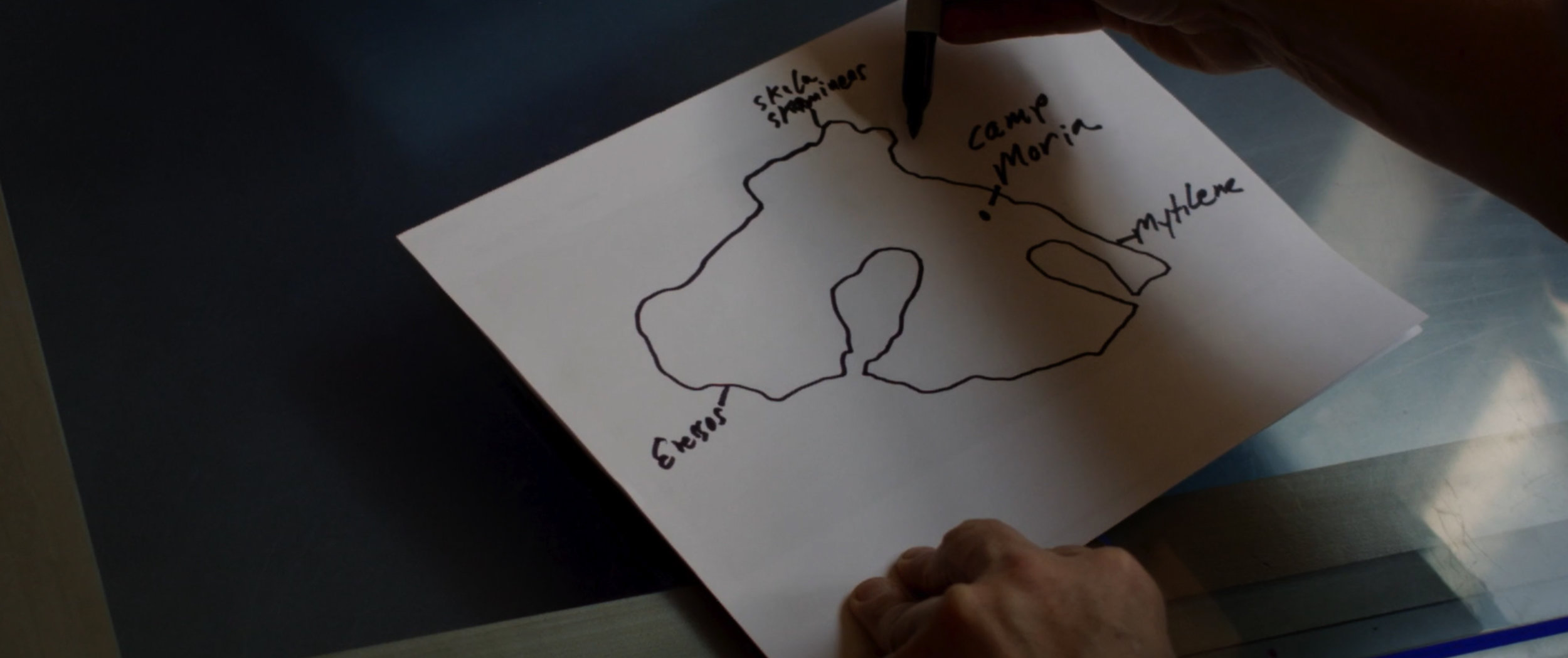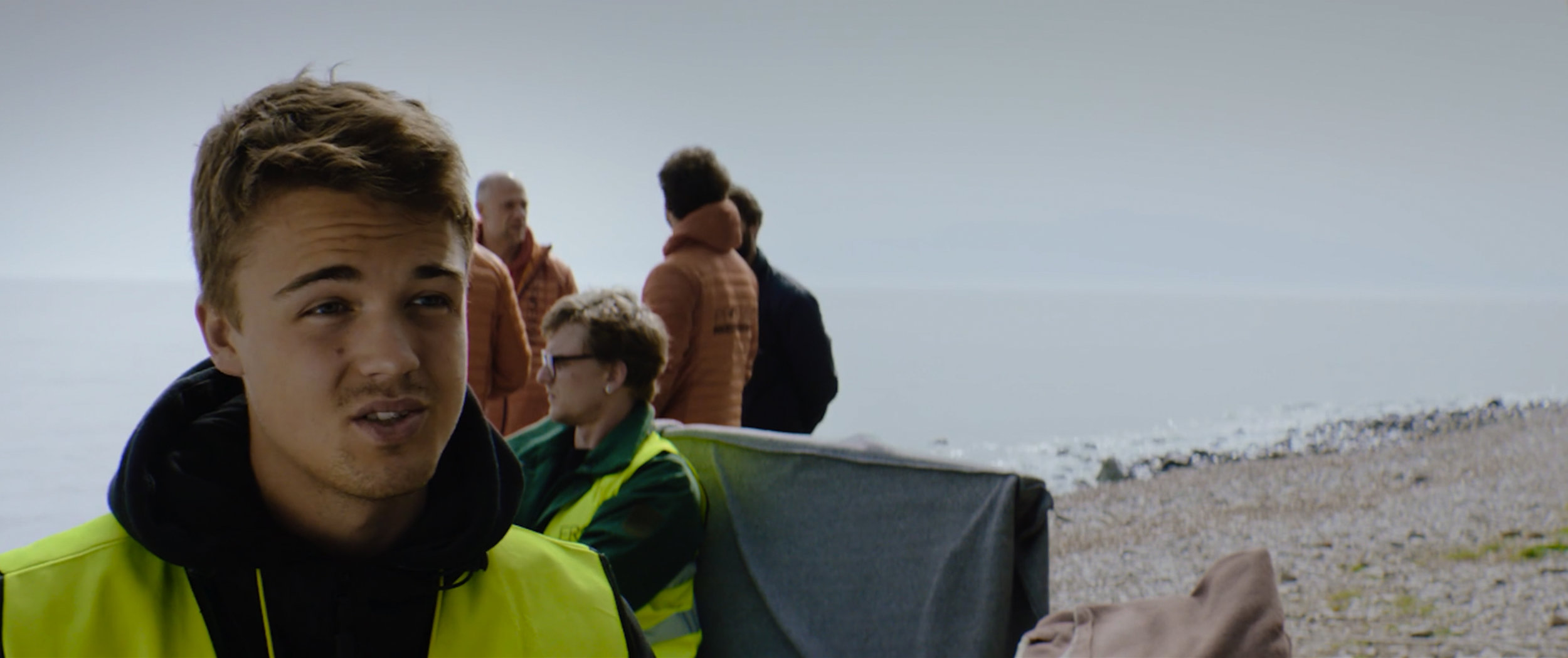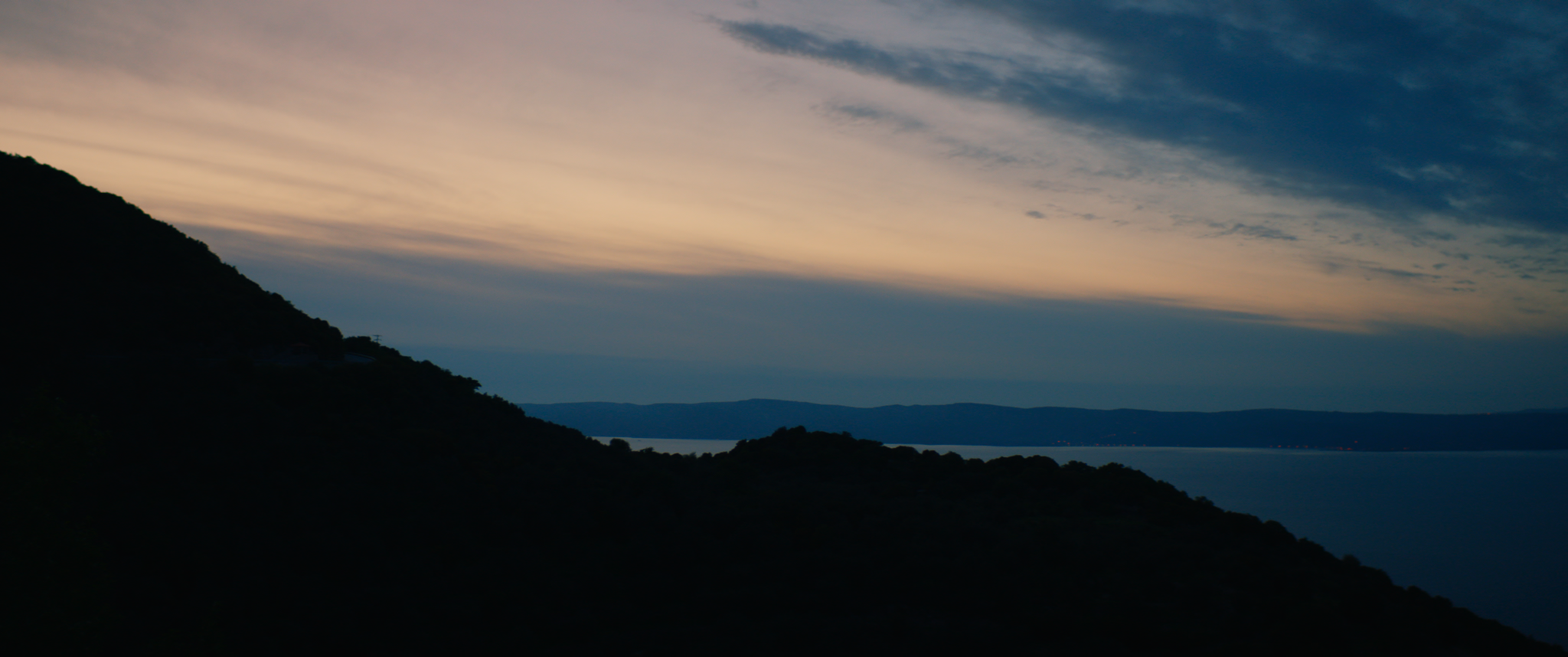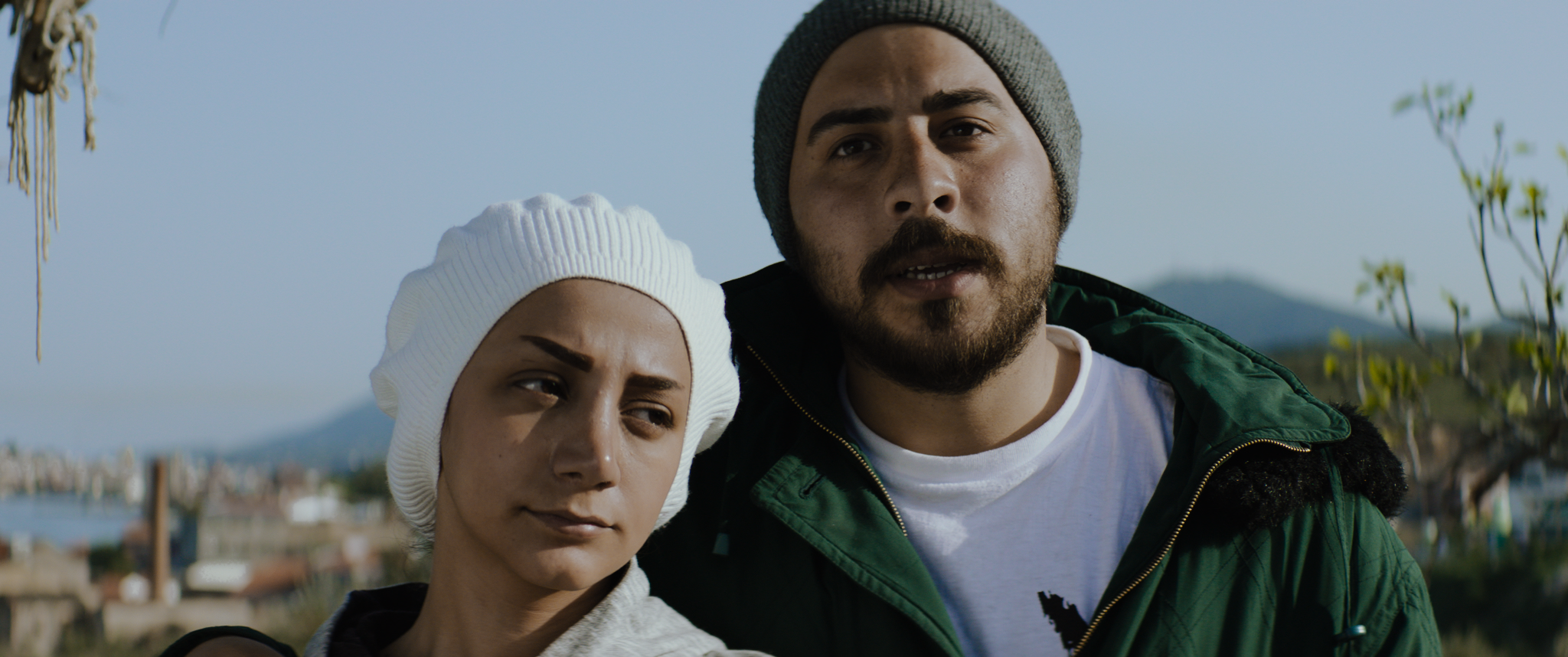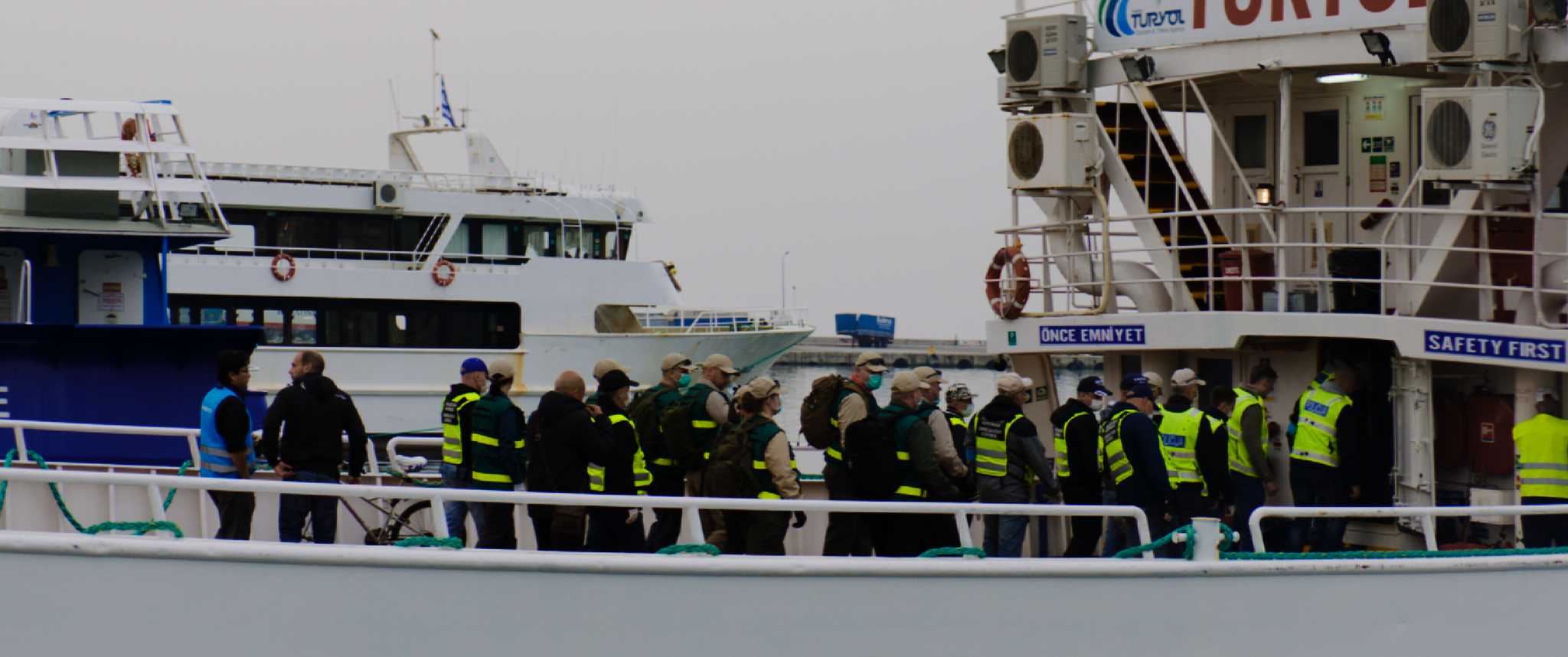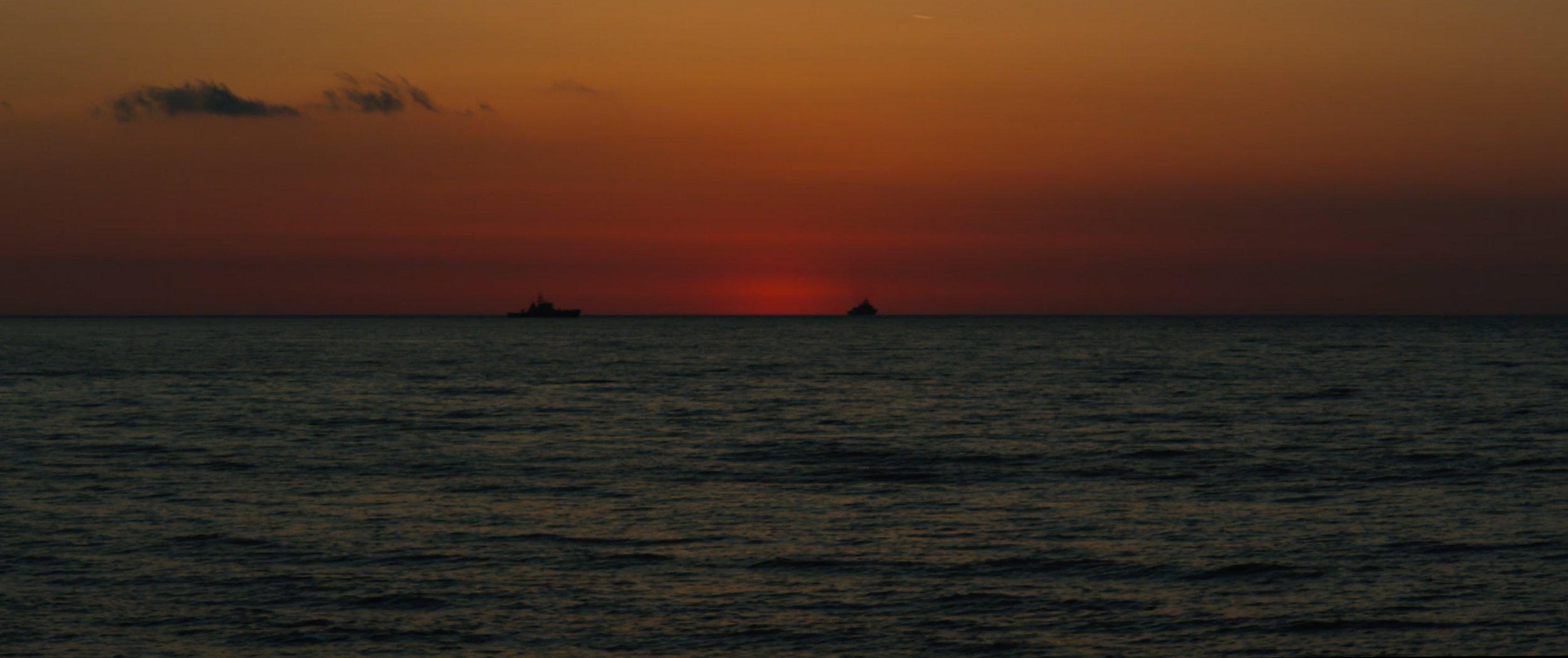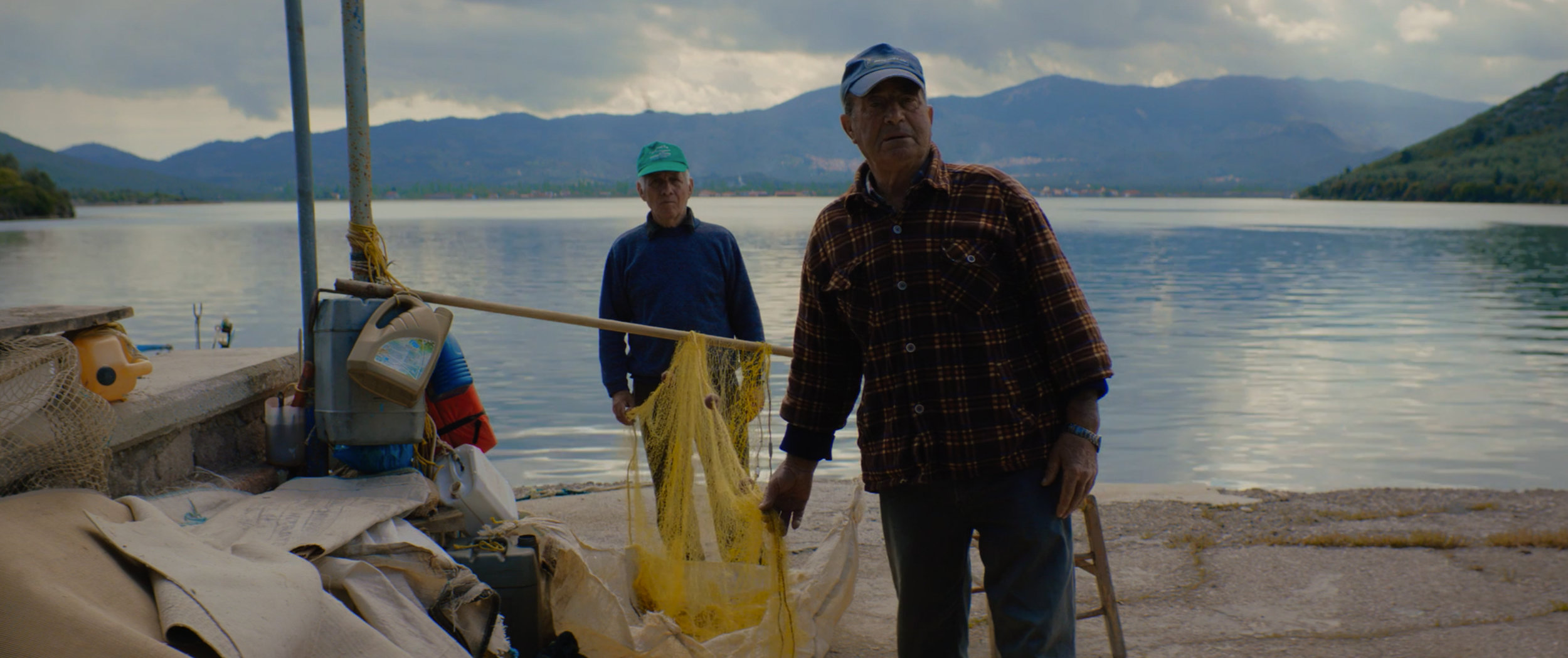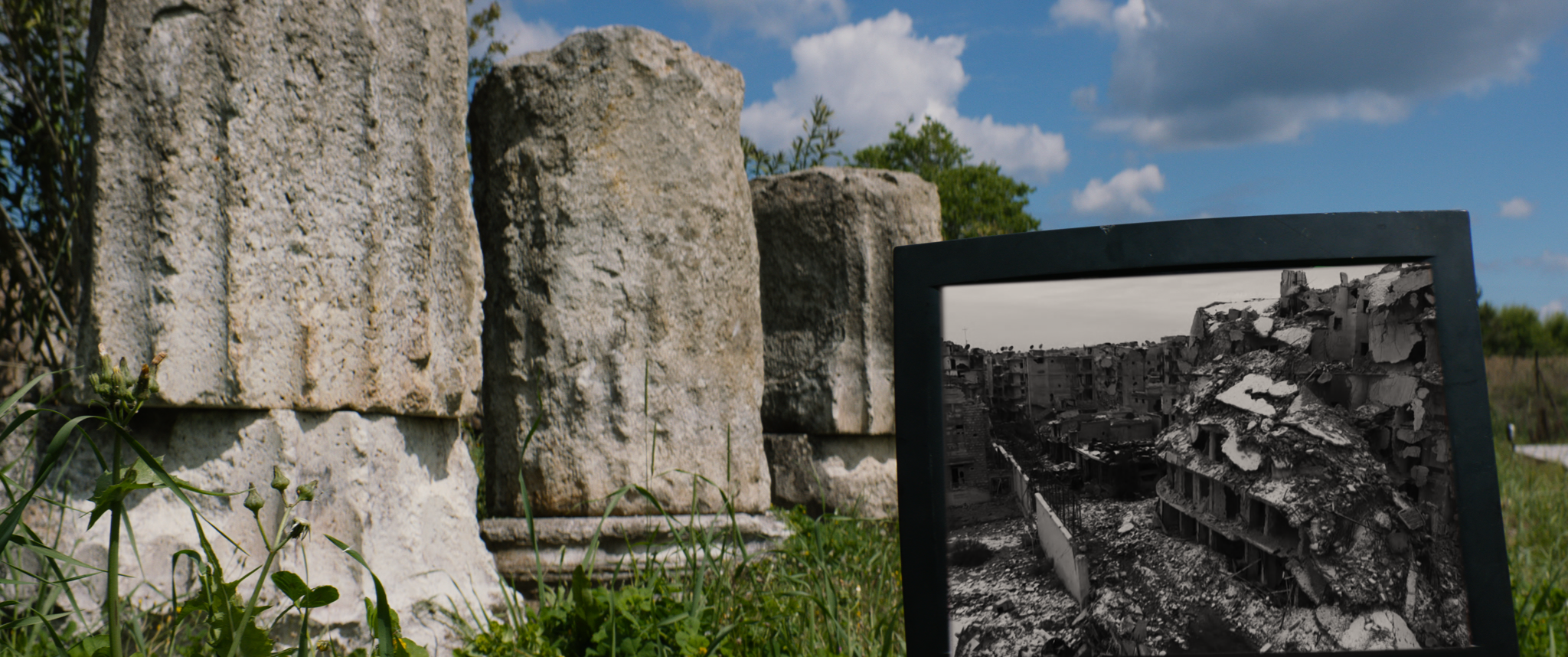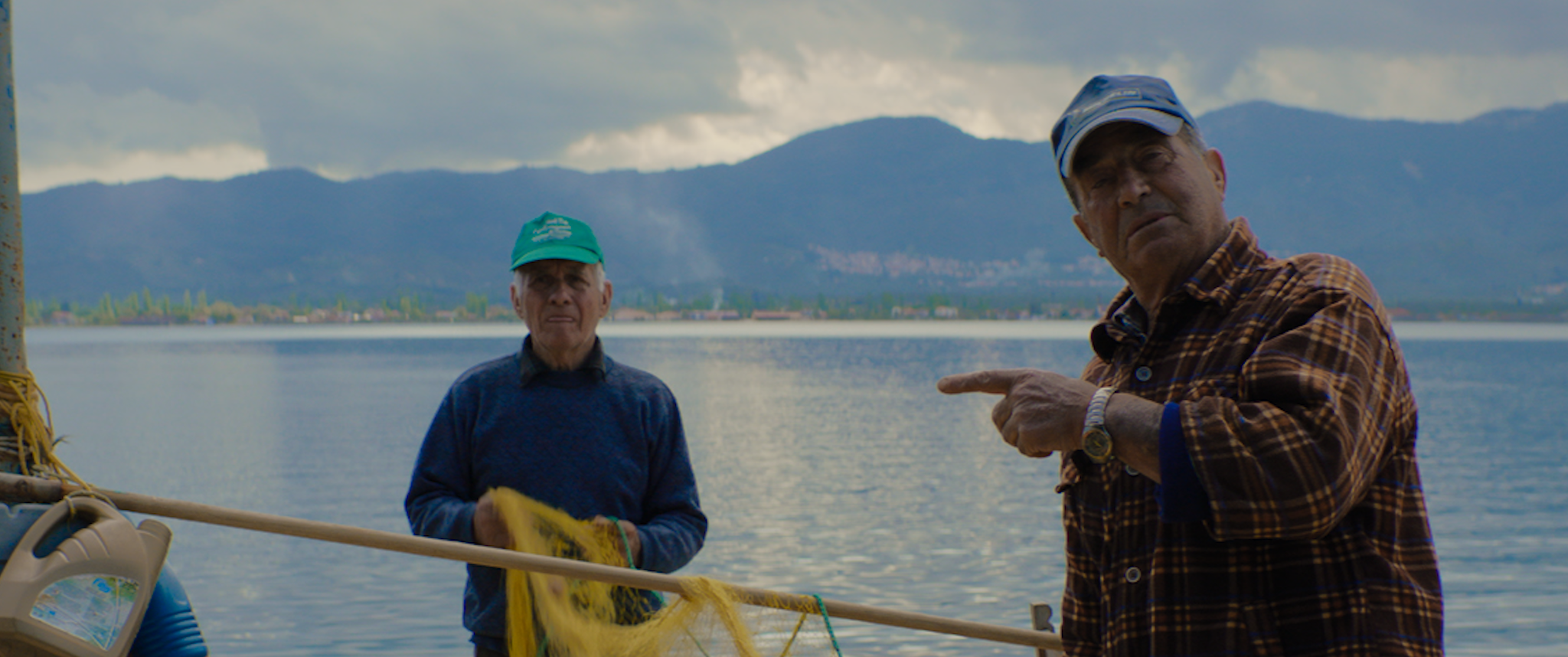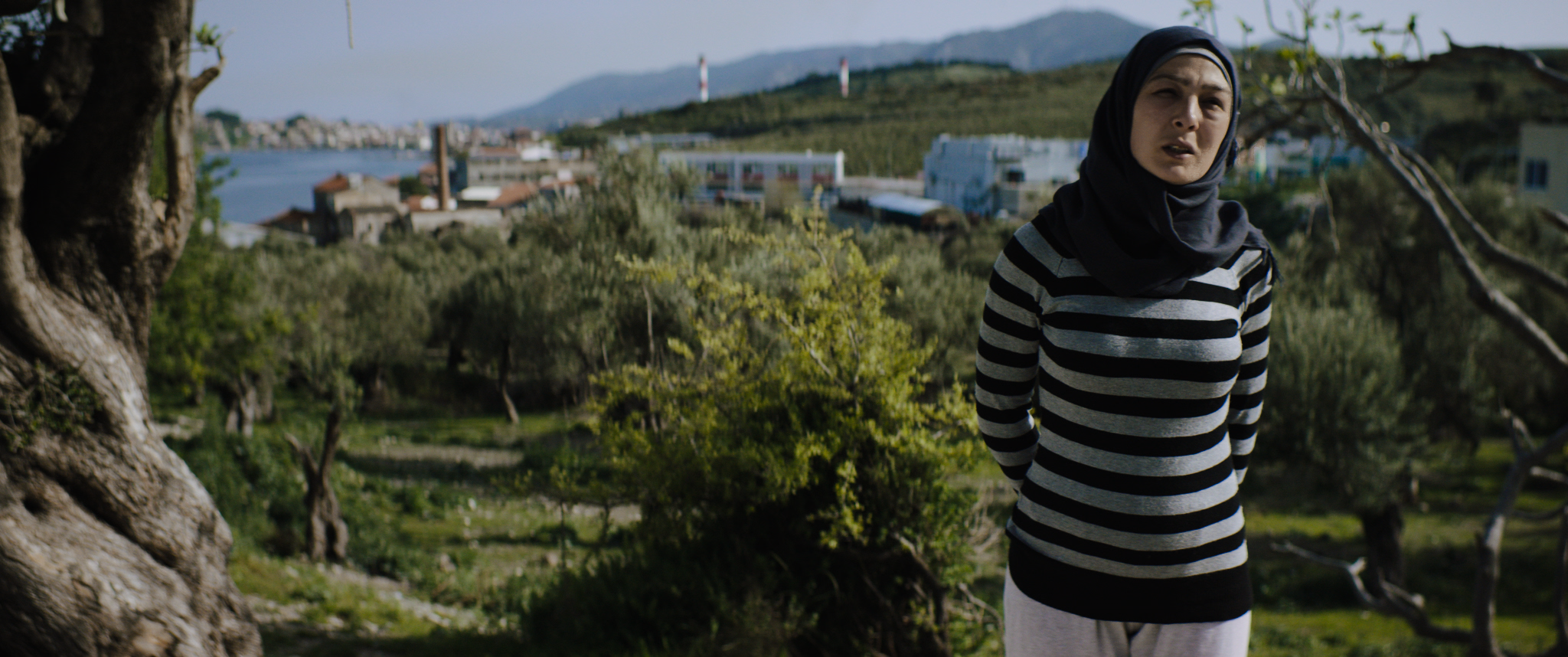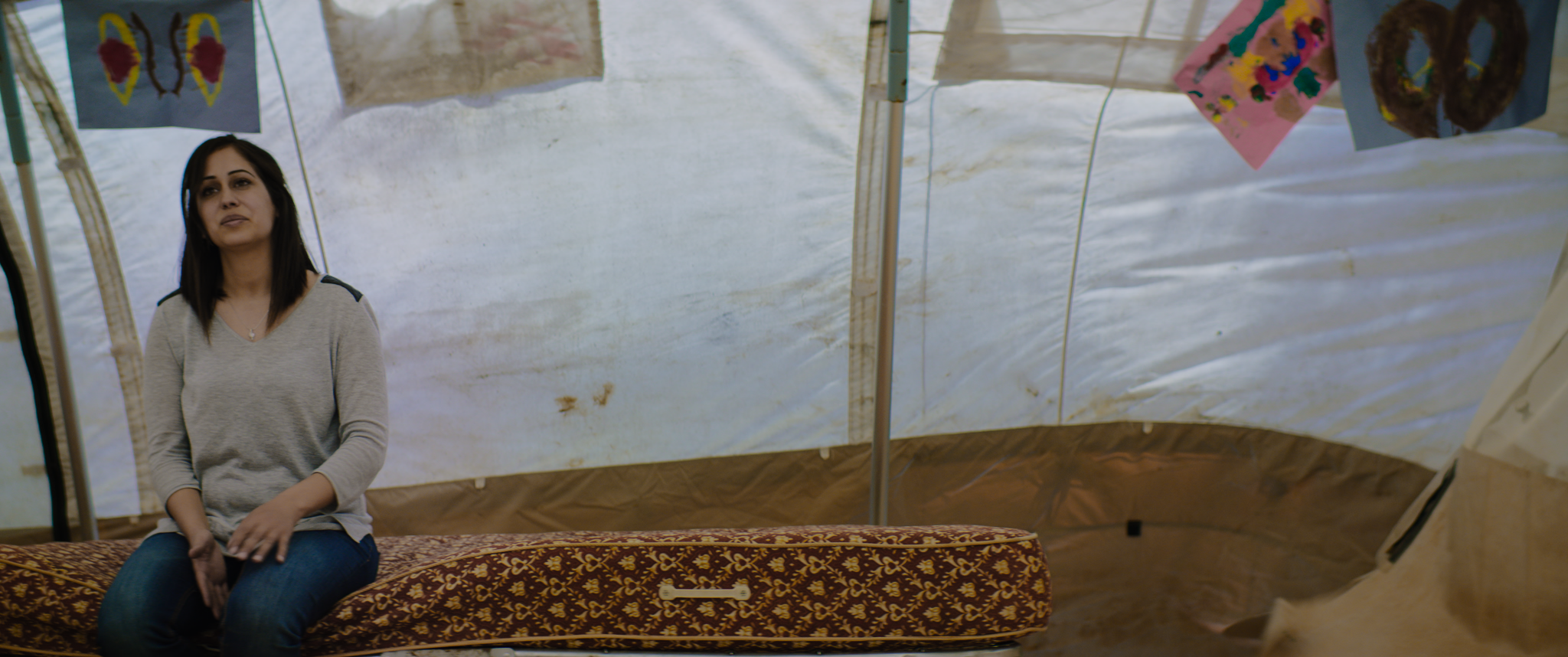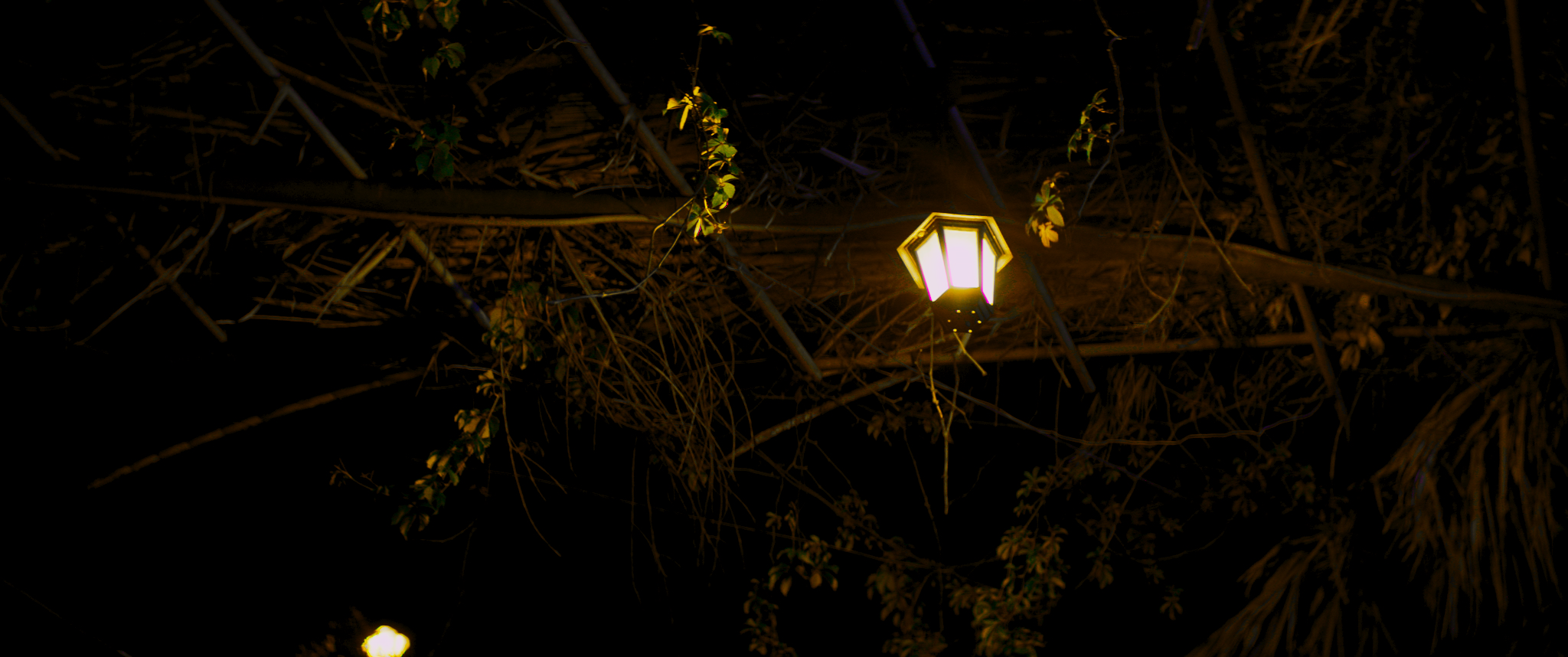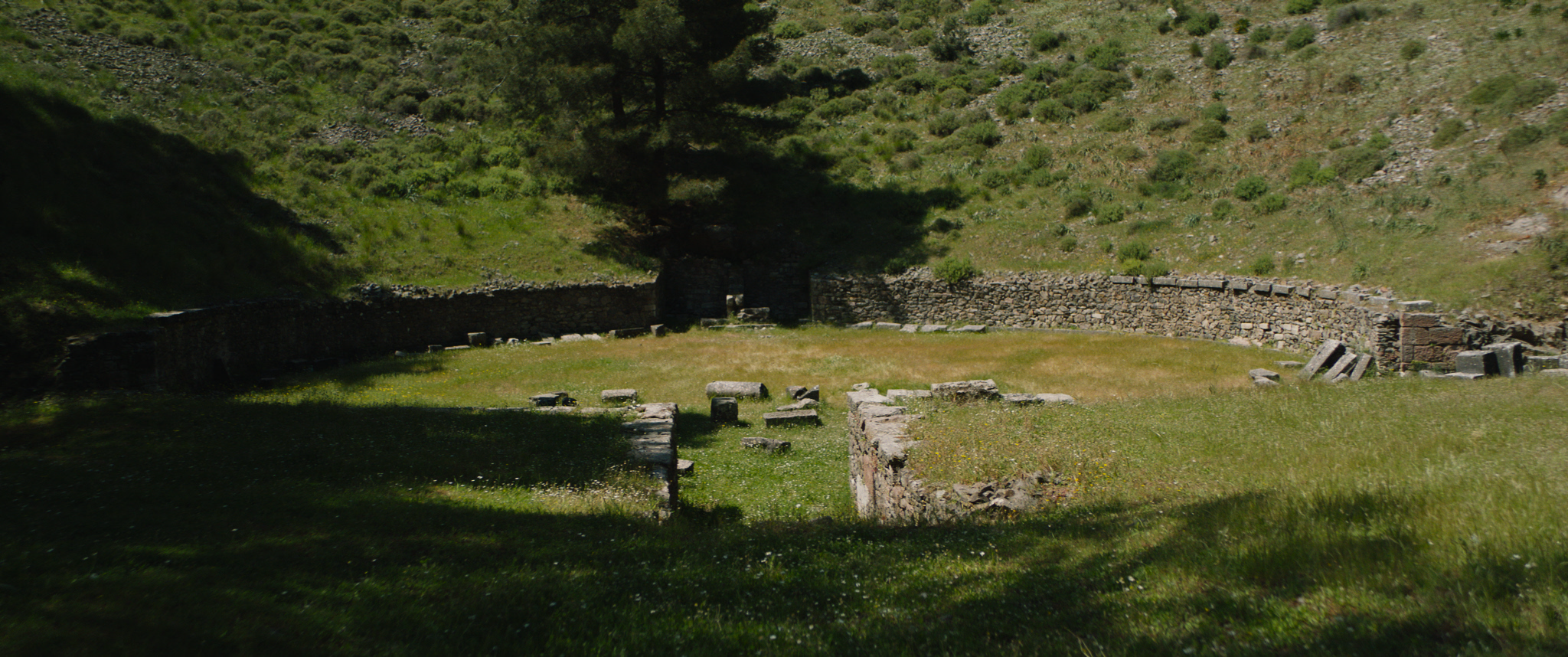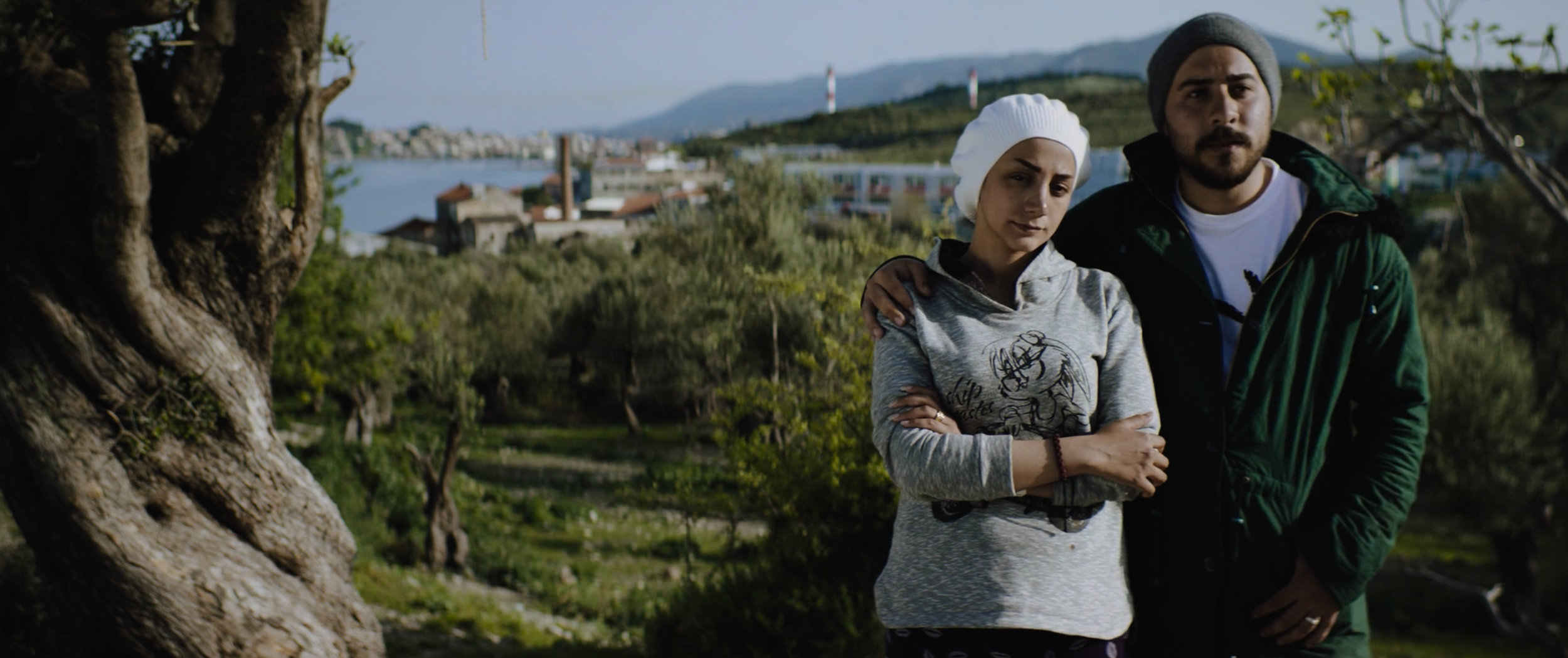
No Human Is Illegal
Completed in 2018 and filmed entirely on the Greek island of Lesvos, NO HUMAN IS ILLEGAL is a documentary about what is perhaps one of the darkest and most seminal political historical events of the start of the 21st century: the founding of a zone of exclusion within the Eurozone. The spring of 2018 marked the second anniversary of the European Commission, the ruling body of the Eurozone, radically revising its policy regarding undocumented migrants arriving on the Aegean islands of Greece. At that time the European Commission declared undocumented migrants arriving on the Aegean islands would be sent back to Turkey.
Filmmaker Richard C. Ledes and his small crew arrived a few weeks later on the island of Lesvos—the main point of entry from Turkey into Europe. They began interviewing asylum seekers, mainly from Syria but from elsewhere as well, experiencing for the first time being detained indefinitely in Europe, many of them in horrendous conditions of overcrowding. The filmmaker connects his own family's experience as Pontian Greeks who left Turkey for the United States as refugees in the 1920s to the current situation of asylum seekers on the island.
Through stunning cinematography of the island's natural beauty and archaeological ruins shot by Italian cinematographer Valentina Caniglia, Ledes connects the island's literary and historical importance in ancient Greece to the current conditions of refugees and the importance to Europe of what is happening to these people detained on its borders. These poetic and political leaps combined the compassion of the volunteers, the conflicting responses of the people living on the island and the testimony of the refugees themselves create a vital record of this major confrontation between Europe's ideals and its current choices.
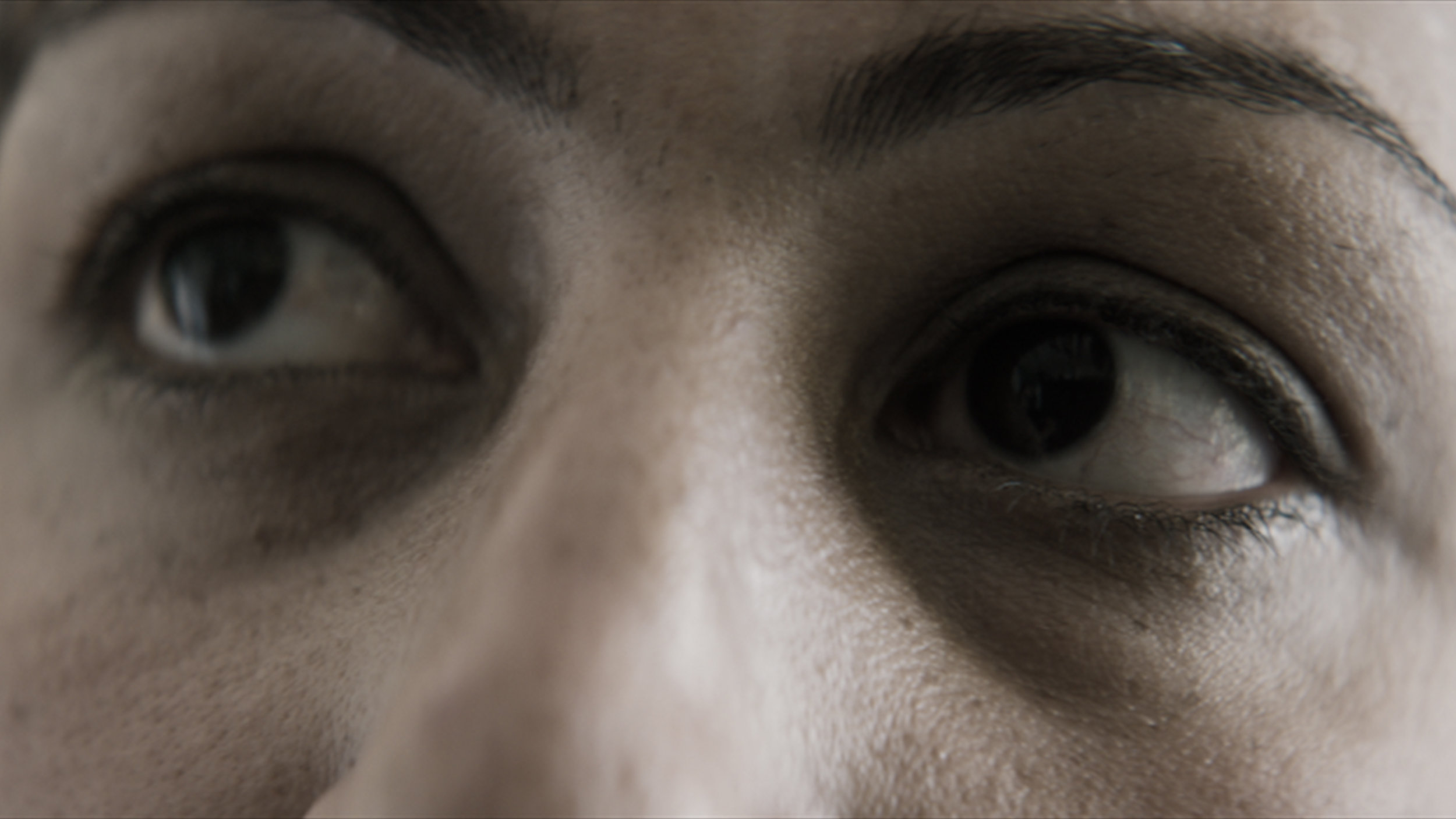
Director's Statement
NO HUMAN IS ILLEGAL, completed in 2018, is a documentary I began “on the fly” in 2016. It is about the people who managed to cross in boats supplied by smugglers from Turkey to the Greek island of Lesvos, as the nearest point of entry into Europe, and who, at the time of this writing, are still held indefinitely on the island. My grandparents left Turkey for the United States in the 1920s as Pontian Greeks. Most of the inhabitants of the island of Lesvos are descended from the same wave of ethnically Greek refugees as my grandparents. The island is also both where Sappho was born and wrote her poems and where a revolt in the 5th century bc took place that is described in detail by Thucydides in his History of the Peloponnesian War. This confluence of personal and historical associations made me feel I might offer a perspective to what is happening to people currently referred to as “refugees” or often as “undocumented migrants” that could do more than just reinforce conventional wisdom.
By chance, when I and my small crew arrived on the island in April of 2016, it was just after Europe had radically revised its policy towards the people arriving on the island from Turkey in overcrowded boats controlled by smugglers. Less than two weeks earlier the European Council had published its new policy, beginning: “All new irregular migrants crossing from Turkey into Greek islands as from 20 March 2016 will be returned to Turkey.” Although the rest of the proclamation by the European Council offers many legal qualifications to this statement, the spirit of the new policy is contained in this opening sentence.
Because of this change in policy, most of the people we met are detained on the island, in facilities not constructed for this purpose. This has continued to be the story of these people ever since; most of them are held in the main camp which can only be described as a concentration camp; individuals and, in some cases, entire families, including young children, are held in horrendous conditions of contagious diseases, lack of sanitation, lack of potable running water and with hyper-overcrowding that at this time continues to grow worse. We listened to what people forced to leave their homes and come to Europe had to say about their lives, their families and their goals. The film aims to promote the agency of the refugees by speaking with them and listening to them. It further aims to connect its audience to the refugees as people deserving of respect, compassion and of solidarity. In closing I want to thank my extraordinary collaborators that came from many countries, including France, Greece, Italy, Mexico, Romania and the United States. In particular, I want to single out the work of cinematographer Valentina Caniglia and the composers François and Louis Moutin. Canglia’s work in Cinemascope underlines that what is referred to as the crisis of the refugees is not about physical space but about the values of Europe. Rather than speaking without translation in languages most Europeans and Americans don’t understand, we wanted to give the people space, both literally and figuratively, to tell their personal stories. The jazz score composed by the Moutin brothers and played by the Moutin Factory Quintet beautifully illuminates the film’s multiple cultural resonances. On the lives of people forced to flee their homes and cross national borders in search of safety, NO HUMAN IS ILLEGAL provides an historical perspective that is also a personal one.
Richard C. Ledes
May, 2018
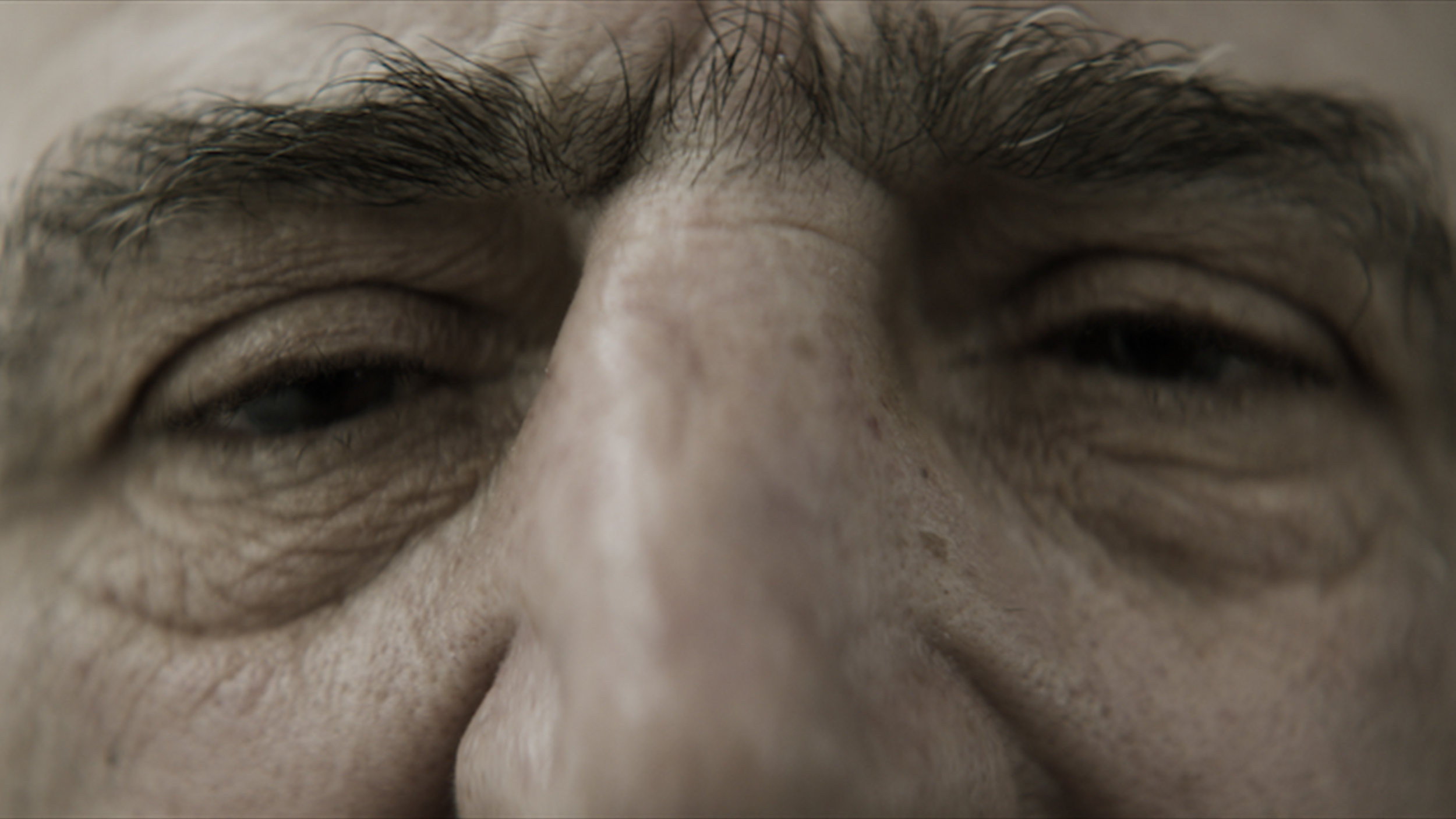
Filmmakers
Richard C. Ledes
Director, Producer
In 2004 A HOLE IN ONE was nominated for the Jury Award at the Tribeca Film Festival. In 2008 his feature fiction film THE CALLER, with Frank Langella and Elliott Gould, won Best NY Narrative Feature at the Tribeca Film Festival and in 2012 his feature fiction film FRED WON’T MOVE OUT, with Elliott Gould and Fred Melamed, was nominated for Best North American Independent Film at the Tallinn Black Nights Film Festival. His most recent film, NO HUMAN IS ILLEGAL, is about refugees detained on the island of Lesvos, waiting to learn if they will be allowed to stay in Europe. He serves on the Cinema Committee of BAM (the Brooklyn Academy of Music). - www.richardledes.com/
Valentina Caniglia
Director of Photography
Caniglia has been credited as cinematographer on over 60 films. She has been the recipient of many awards including the Golden Dagger for Best Cinematography for a film premiered in the US at the Sundance Film Festival (POMEGRANATES AND MYRRH), Best Cinematography award at the Louisiana International Film Festival (MADELINE’S OIL) and best cinematography award at Hoboken International Film Festival (SHADES OF LOVE). Her work as cinematographer on the film POMEGRANATES AND MYRRH was recently the subject of an article in the magazine American Cinematographer.
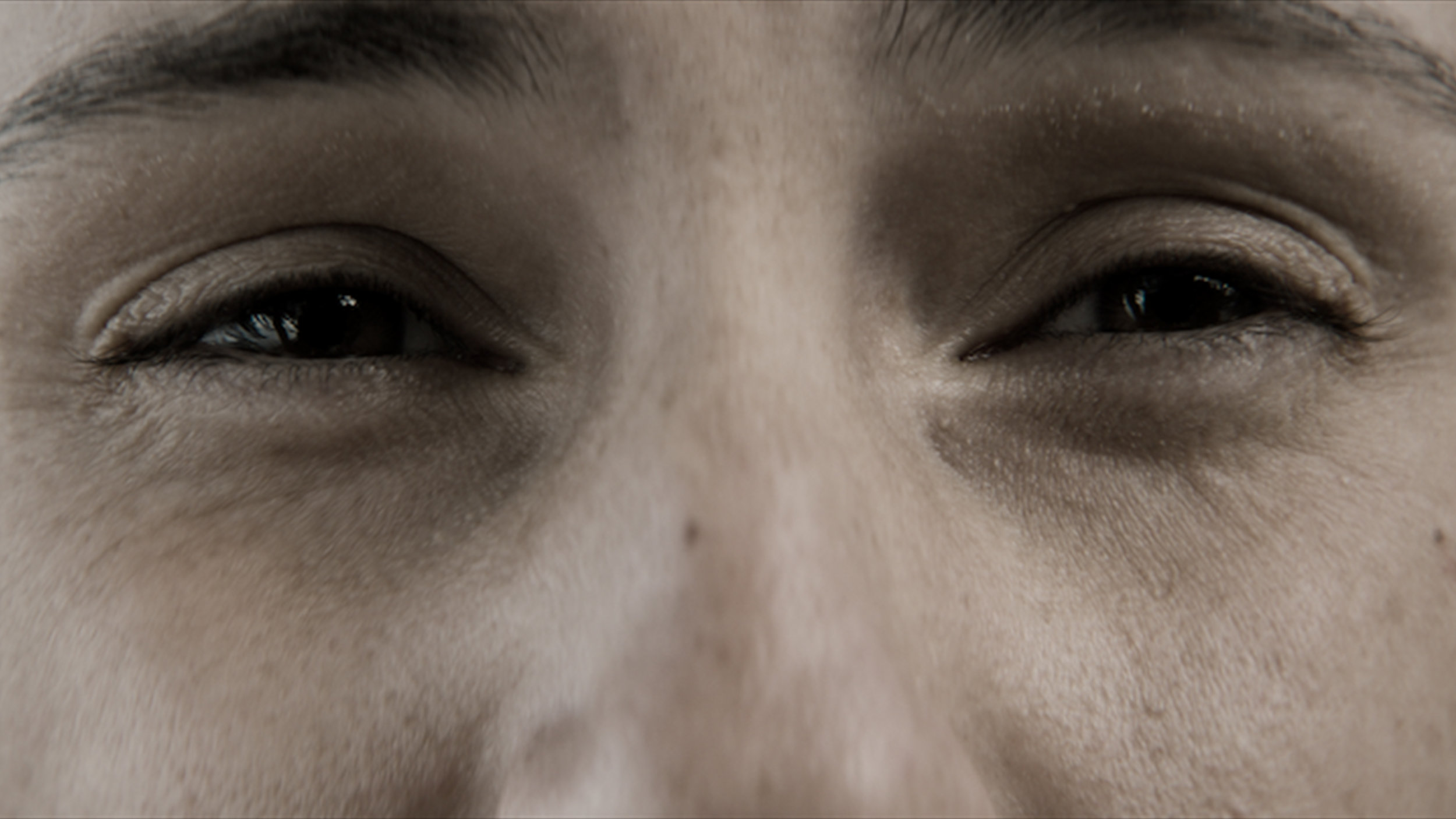
Trailer
Latest News
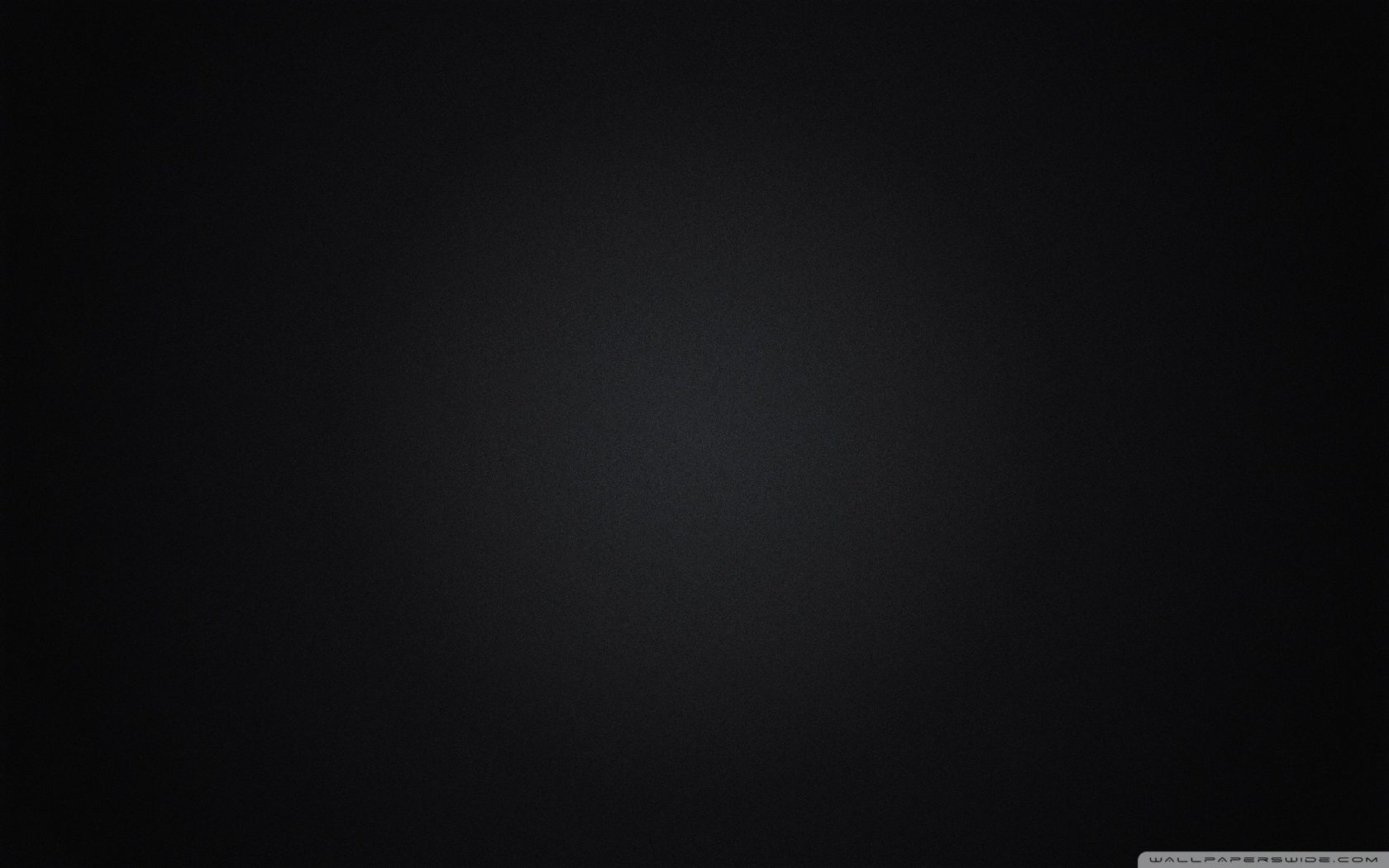
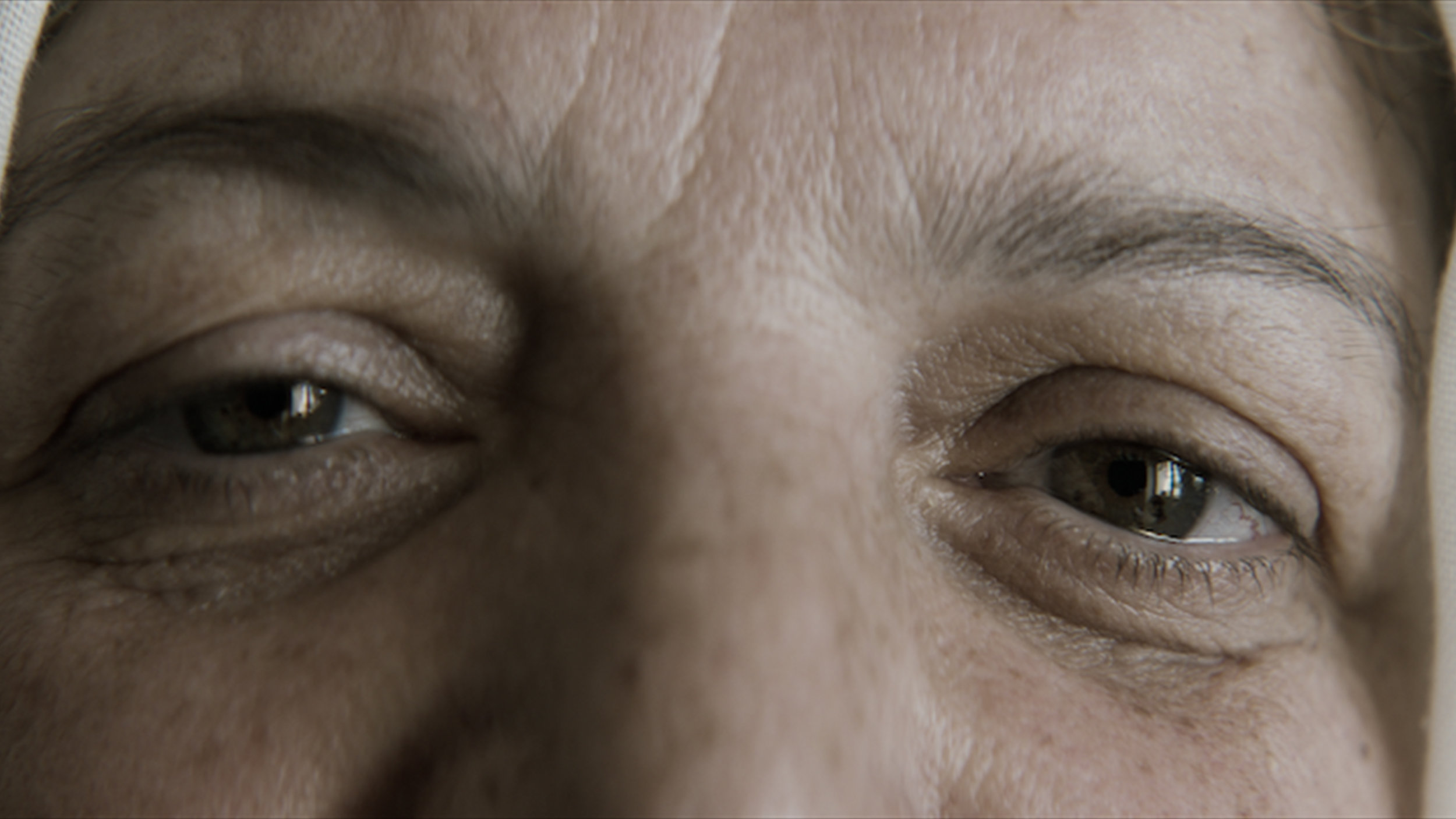
Tech Specs & Social
Run Time: 60 minutes 45 seconds
Year: 2018
Languages Spoken: Arabic, English, Greek, Kurdish and Spanish
Subtitles: English
Format: 2.35 (SCOPE)
Production: United States, Greece
Sales/Distribution: assistant.richardledes@gmail.com
Official Website: www.nohumanisillegalfilm.com
Official Facebook: facebook.com/nohumanisillegalfilm
IMDB: imdb.com/title/tt5876990/
Twitter: twitter.com/NHIIFilm
Production Stills
Click any image for hi-res Download













